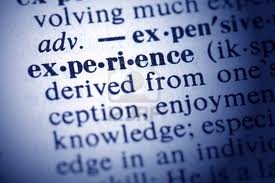
Truth vs. Experience
Recently, I was part of a meeting where the speaker made a claim that almost startled me. His hypothesis was that if a certain man’s teaching and experience worked for him – even when there was no biblical support for such – then the success of this man’s experience made it a legitimate truth. So this begs the question: Does personal experience determine truth? For that matter, what is truth?
God’s Word is Truth
Jesus said, “Your (God’s) word is truth”; therefore, truth is defined by God’s Word. Truth is not defined by what we can see, touch, smell, taste, hear or experience. It is a dangerous precedent to seek to elevate an experience (whether yours or someone else’s whom we may hold in high regard) above the Word of God or even try to make it equal to the Word of God.
One of the pitfalls for Kingdom people today is the very common and human tendency to use our experiences as the filter for interpreting the Word of God. Poor exegesis and doctrinal error abound when we use our experiences to interpret and define truth, instead of using the truth of God’s Word to interpret and define our experiences. Therefore, when there is a conflict between our world view, what we have always practiced or believed, or what we are accustomed to and what the Bible teaches as truth, it is not the truth that needs to bend to fit into our particular paradigm or experience, but our experiences which need to be conformed to God’s truth.
The Limitations of Experience
So does personal experience determine truth? No!!! And neither does experience or the lack thereof make truth valid. The Word of God can never be invalidated due to a lack of experience.
For example, I believe in the power of God to raise the dead even though I have no personal experience of the dead being raised. I even went to the morgue one time to raise my dead cousin back to life who had been hit by a bus and killed. I believed she had been taken prematurely and had every confidence that we (my friend Ancil and I) could bring her back to life. We had the faith and we put it into action, but she never awoke! Does this mean that God is either incapable or unwilling to grant the power to raise the dead to His chosen people? A thousand times no! My lack of experience does not invalidate this truth.
However, our experiences must be validated by the Word of God and should NEVER contradict it (2 Tim 3:16). As we mentioned earlier, when our experiences contradict the Word it is our experiences that should be called into question and NEVER the Word. God’s intention from the beginning was that man would learn from instruction (The Word) rather than experience.
It should be noted, though, that while experience has no power to determine or define truth, it does have the power to confirm truth. The truth we know becomes meaningless to us and others unless it can be translated into a valid experience. Our experience of truth confirms that the truth is real. When there is no experience there continues to be a disconnection between truth and reality.
This is why Jesus, after having given the disciples over three years of teaching and training, decided to give them an experience of Holy Spirit baptism before they were qualified and ready to take His message to the nations (Acts 1:4-5; 2:1-4).
Experiences are limited, however, because they can be subjective and temporal rather than fixed and eternal. Your experience today may not be your experience tomorrow. Someone’s experience today may never become your experience in your lifetime, or vice versa.
It is said that “a man with an experience is never at the mercy of a man with an argument.” But biblically speaking, a man with the Word of God (not just his opinion of it) will never be at the mercy of a man with just an experience, because when everything else passes away, it is the Word of God that shall abide forever (Matt. 24:35).
Experiences can be both convincing as well as powerful, but having an experience alone doesn’t make one potent. In fact, it is when we place an overemphasis upon experiences that we become weak and more prone to deception. It is only when there is a marriage and interface between the Word of God and our experiences that there is potency.
Conclusion
Experiences are good and can be indicative of a healthy faith, but as with everything else, must be subjected to the primacy of the Word of God. If you choose to elevate personal experiences above, or to the same level as, God’s eternal Word, you are not only going to be a prime candidate for deception, but chances are you’re deceived already.

Leave A Comment